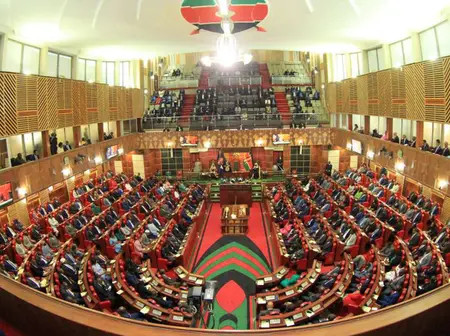A storm broke out in a parliamentary committee on Wednesday as MPs accused the Teachers Service Commission (TSC) of presiding over what they termed as unequal recruitment of teachers.
Lawmakers argued that the process, which was meant to fill gaps in schools across the country, has been marred by bias, political influence, and regional imbalances.
During heated committee session, Naivasha MP Jane Kihara raised alarm over the distribution of employment forms, claiming that the exercise had been manipulated to benefit constituencies seen as politically aligned to the government.
“Employment forms are being distributed preferentially through pro-government MPs,” she said, adding that this amounted to an unfair reward system that sidelined other deserving areas. She described the exercise as a “presidential Christmas gift” extended only to select constituencies while many qualified candidates remained unemployed.
Kihara warned that the practice was shutting out many deserving teachers. “Many teachers who meet the qualifications will miss out,” she told the House, insisting that the exercise must be scrutinized to prevent it from turning into a political tool.
Other legislators backed her sentiments, expressing concern that the fairness of the recruitment process had been compromised. They argued that the distribution of teachers should reflect merit and national balance rather than political loyalty. Some went further to call for the suspension of the recruitment until the allegations are investigated and clear guidelines are put in place.
The debate also touched on the issue of teacher deployment and allowances. MPs questioned why rural and hardship areas continue to face teacher shortages despite repeated assurances that the government is addressing the problem.
Isiolo Woman Representative Mumina Bonaya pointed out that teachers in her county earn significantly less in house allowances compared to colleagues in urban centres such as Kisumu and Nakuru, even though conditions in Isiolo are far more challenging. She warned that such disparities could drive teachers away from hardship areas, leaving already vulnerable schools at risk of collapse.
Concerns were also raised over the classification of hardship zones. Lawmakers argued that the current system was outdated and inconsistent, leaving some regions excluded from the benefits despite experiencing the same difficulties as those officially recognised. They called for a review that reflects the reality on the ground rather than relying on blanket classifications.
In response, TSC officials defended the commission’s position, stating that recruitment follows established laws and policies. They noted that the commission operates within the framework provided by the Salaries and Remuneration Commission when it comes to allowances and hardship classifications.
However, MPs insisted that this explanation was inadequate, maintaining that the current framework still perpetuates inequality.
The debate comes at a time when the commission is under new leadership, with Eveleen Mitei serving as Acting CEO following the departure of long-serving chief executive Dr. Nancy Macharia, who proceeded on terminal leave. Mitei now faces the immediate task of restoring public confidence in the commission while overseeing one of the largest recruitment exercises in recent years.
The matter remains unresolved, but MPs have made it clear that they expect swift action to ensure teacher recruitment is transparent, equitable, and free from political manipulation. For many teachers who have been waiting for opportunities, the outcome of this debate could determine whether they finally secure jobs or continue to be locked out of the system.

Leave a Reply